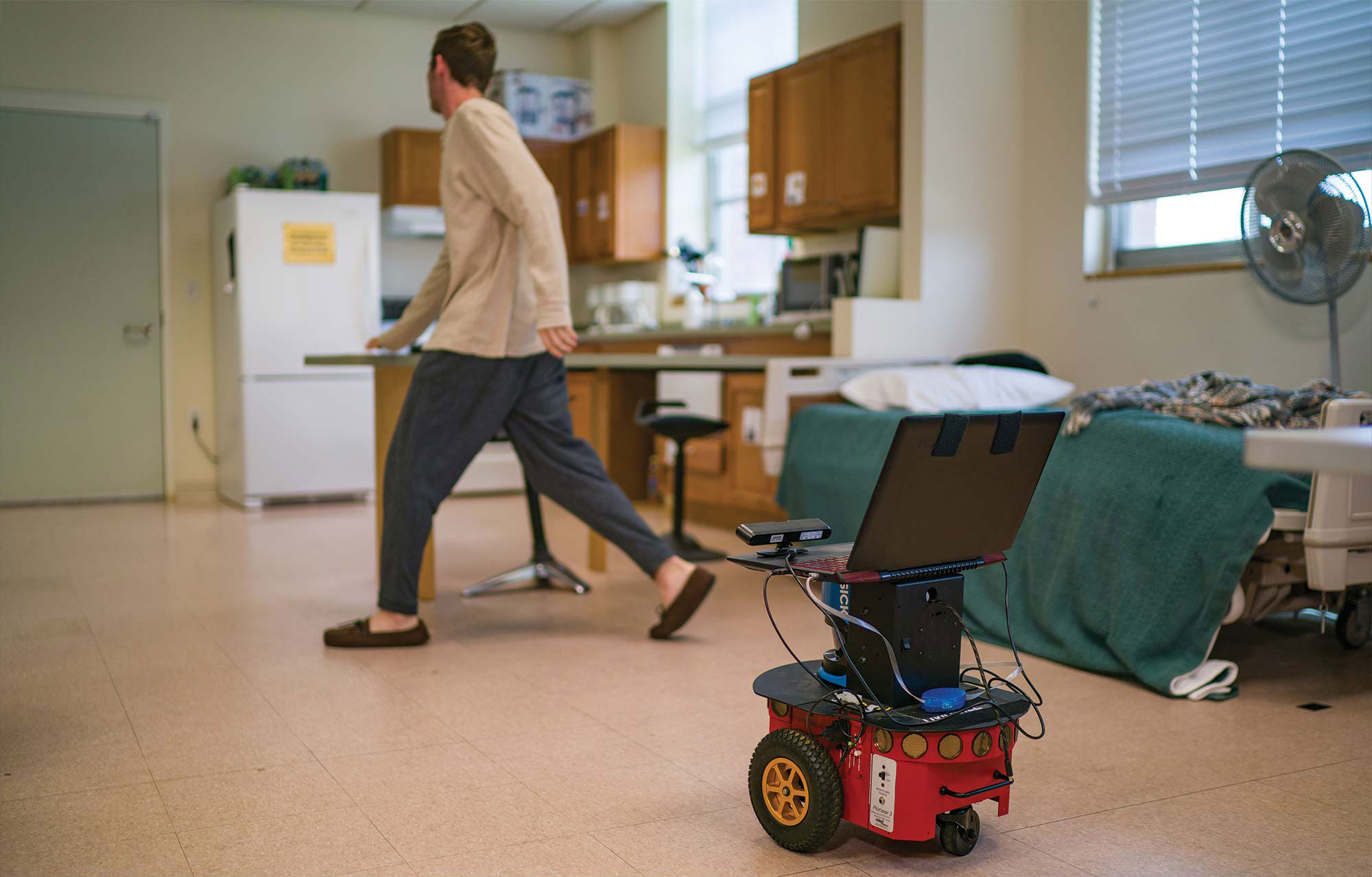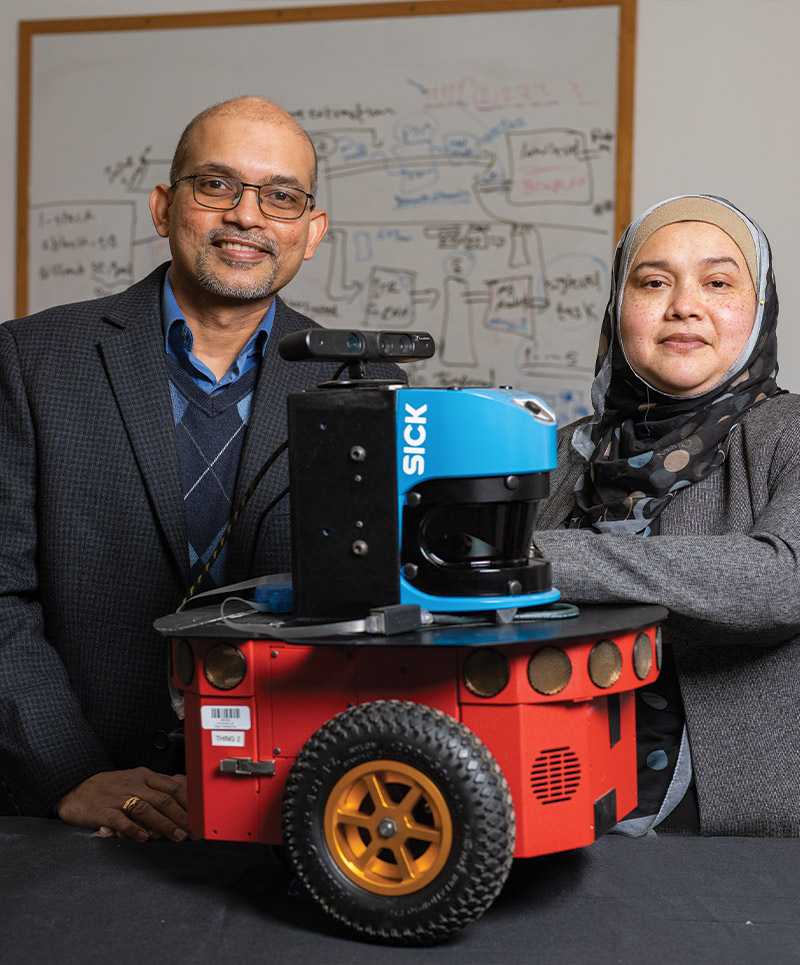

elping vulnerable seniors age safely in their homes can take a village of support. At UNH, that village includes a pair of researchers from very different fields, a friendly robot and funding from an innovative program that jump-starts interdisciplinary collaborations.
Momotaz Begum, assistant professor of computer science, and Sajay Arthanat, professor of occupational therapy, launched their assistive robot project in 2019 with funding from UNH’s Collaborative Research Excellence Initiative (CoRE), supported by UNH’s Office of Research, Economic Engagement and Outreach. Now in its fifth year, CoRE has invested more than $2.2 million into 83 research teams. In just the first three years, CoRE initiatives resulted in $44 million in new grant awards from external funders.
“Complex problems require interdisciplinary approaches, and this has been recognized by many research funders — including federal agencies like the National Science Foundation,” says CoRE manager Maria Emanuel. “CoRE funding provides an opportunity for researchers to create new teams, hone a research focus, create common vocabularies, and integrate labs.” Seventy percent of CoRE teams include faculty from at least two UNH colleges, while 34% include an external partner.
For Begum and Arthanat, pilot funding from CoRE helped them create a proof-of-concept robot intended to someday support people living with Alzheimer’s disease. Now, they’re waiting to hear if their $2 million National Institute of Aging grant proposal will be selected for funding.
Should they receive funding, they will be able to further study how robots can work with commercially available Internet of Things devices found in homes — such as motion control cameras and sensors — to keep older adults safe and compliant with their health care. They hope to then move their research from a controlled lab into older adults’ homes for pilot testing.
“Without CoRE, we wouldn’t be talking about this application, nor would we have been able to pursue external funding multiple times,” Arthanat says. “Prior to CoRE funding, reviewers said it had potential, but they didn’t know if it would work. When we submitted it for a second time with pilot data, it was like day and night. We were invited to keep applying again and again.”


Beyond university walls, CoRE has helped facilitate partnerships across the community and state. The Promotion of Early Childhood Coalition (PECC), led by Kerry Kazura, associate professor of human development and family studies, created a diverse coalition interested in promoting high-quality early learning experiences for all children.
“Investing in CoRE enables our researchers to address pressing challenges that are at the intersection of multiple disciplines. The results of these cross-cutting efforts support UNH’s role as a thought leader on critical issues and provide valuable contributions to our society’s health and prosperity,” says Marian McCord, senior vice provost for research, economic engagement, and outreach.
CoRE continues to bring together UNH researchers who wish to make the world a better place through their research. In the last funding cycle, the program received 28 applications, with proposals seeking almost $900,000 in funding. Among the 14 winning proposals are one to fly space science center instrumentation on a NASA mission that will explore the sun’s impact on Earth and space, and a project studying microbial responses to plastic contamination in the ocean.
As new CoRE projects begin, others continue to build upon their outcomes. Begum credits CoRE for its ability to provide the seed funds needed to bring faculty together and get research projects off the ground. CoRE funding has enabled her team to continue refining robot algorithms as they relate to carrying out health care tasks for older adults. “Research-wise, CoRE is the best thing that has happened at UNH ever since I joined in 2016,” Begum says.